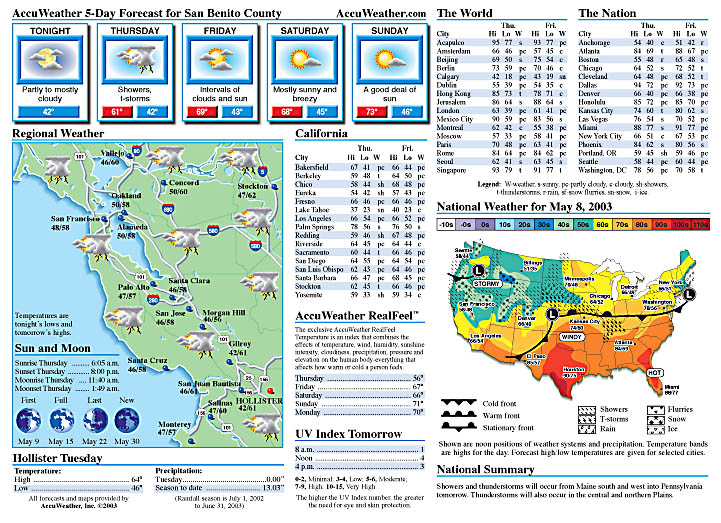Americans will go to the polls 18 months from Tuesday, and it
seems that may be more time than President Bush would like to give
them to decide his fate.
Americans will go to the polls 18 months from Tuesday, and it seems that may be more time than President Bush would like to give them to decide his fate.
The eyes of the United States, which have been focused on the Middle East since Sept. 11, 2001, are beginning to swing back to the domestic issues that dominated the 2000 election – taxes, health care, the environment – and lately are looking with greater angst at a falling economy and an unemployment rate that’s the nation’s highest in eight years, as well as another threat to peace from North Korea.
When he’s not speaking of foes vanquished or looming, Bush’s favorite topic of late has been tax cuts. But his tax-cut plan does not have a great deal of support on Capitol Hill. In addition, he has no health-care plan to speak of, he has yet to sufficiently address the economy and polls indicate that most Americans believe he is not environmentally conscious.
And while there is more than enough time between now and November 2004 to come up with the rhetoric to convince voters that all is well or will get better in these areas, it is not enough time to put plans into action, let alone weigh their effectiveness.
In promoting his tax-cut plan to audiences around the nation, as he did Tuesday morning in Arkansas to the United States Chamber of Commerce, it’s evident that Bush has already started his re-election campaign. Even a political neophyte would realize that the U.S. victory in Iraq is not enough to carry an election 18 months away, so he’s shifting focus to the issues that affect Americans’ lives rather than merely give them cause to wave flags more fervently than usual.
But even that flag-waving may wane sooner than Bush would like. Authoritative voices – not just “left-wing dissenters” – are beginning to be heard, and they say that the weapons of mass destruction that were Bush’s primary reason for attacking Iraq may well have existed only in his foreign policy agenda.
If it indeed is proven that Saddam Hussein’s caches of chemical and biological weapons are too few and too ineffective to be a threat to his enemies in the Middle East, let alone the United States – and that’s beginning to look more like the case – Bush will have some explaining to do. And even a leader’s supporters do not like it when he backpedals.
Unless the United States engages in further conflict in the Middle East or hostilities with North Korea begin, voters will be thinking of domestic issues in November 2004.
If Bush hopes to avoid the mistakes that made his father a one-term president, he would do well to come up with some real answers, not just campaign rhetoric.









